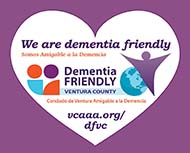By: Sherry Netherland, Director of Special Projects for Assisted Healthcare Services

Crisis is too often the driving force in healthcare decisions and it shouldn’t be. When we are enjoying good health we don’t think about it. Unfortunately, for many of us, the first time we think about our health is when it fails us and we are in a crisis; and crisis mode is the worst time to be making important decisions about what to do.
It is not always the parent who is resistant to the conversation. Children (even adult children) don’t want to imagine that their parents will die. Talking about it can create anxiety for many people.
Knowing how pervasive this issue is, Michael Hebb, a teaching fellow at the University of Washington created a program called, “Let’s Have Dinner and Talk About Death,” to encourage people to engage their friends, family and significant others in a discussion about their desires at the end-of-life in a non-threatening atmosphere. The website, www.deathoverdinner.org provided tips and tools for a death over dinner party if you feel that that might be the right approach for you.
The best way to handle this hot button topic is to plan for the discussion. Don’t ambush family members, but keep in mind that ambushed is the very feeling you will have if you don’t have the discussion and you are forced to make difficult decisions in the middle of a medical crisis. “The doctor said if he operates there is a good chance Dad will be on life support machines for the rest of his life, if he doesn’t operate, he will die. What should we do?” “What? Dad was never sick a day in his life!”
Right now, as you are reading this, how many of you have communicated to your loved ones how you would like to be cared for if you were very ill and couldn’t speak for yourself? How many of you know what your parents would want? Nationally, only about 30% of adults have completed an Advanced Directive. (To download your state specific Advanced Directive worksheet, go to: http://tinyurl.com/44oywho)
Another resource is www.POLST.org (Physician Orders for Life Sustaining Treatment). The POLST from s is completed by an individual and their physician. It discusses end-of-life care, including medical treatment, extraordinary measures (such as a ventilator or feeding tube) and CPR. POLST can prevent unwanted or ineffective treatments, and ensure that a patient’s wishes are honored. You can also find additional resources on that site for talking about advance care planning with your family.
To set an example for your family, begin with yourself. There are many ways to initiate the conversation. Perhaps it will be following a movie or television program about a character who is ill or dying. It can be easy to say, “You know if that were to happen to me, this is what I would like to happen…”
Another example of a conversation starter can be, “While I am in good health, I would like to talk to you about how I would like to be cared for if I really got sick…”
It will be of great value to your family if you put your wishes in writing – even if you have difficulty having the discussion, let everyone know where your “wish list” is.
Most importantly, if you cannot speak for yourself, who will speak for you? Is it your spouse? Is it one of your kids? If you have more than one child, do all the kids know who has the final word? If you have no relatives and you are counting on a friend, make sure that your physician has their name, IN WRITING, as the person who can receive medical information regarding your condition and that they have your permission to speak for you. With current medical confidentiality rules, if you don’t put that in writing, they will be excluded from your medical care.







